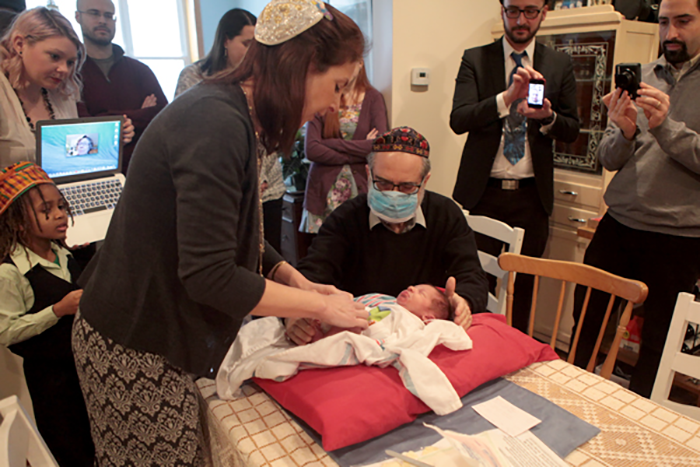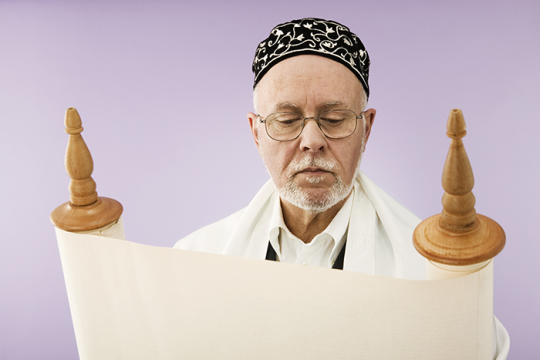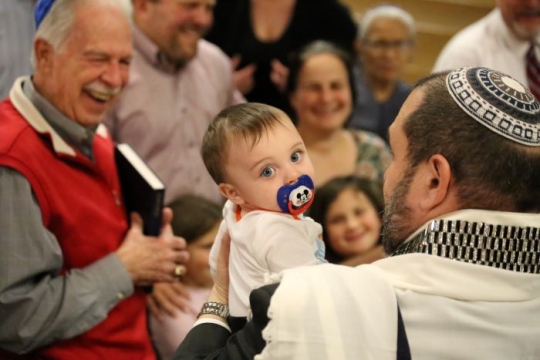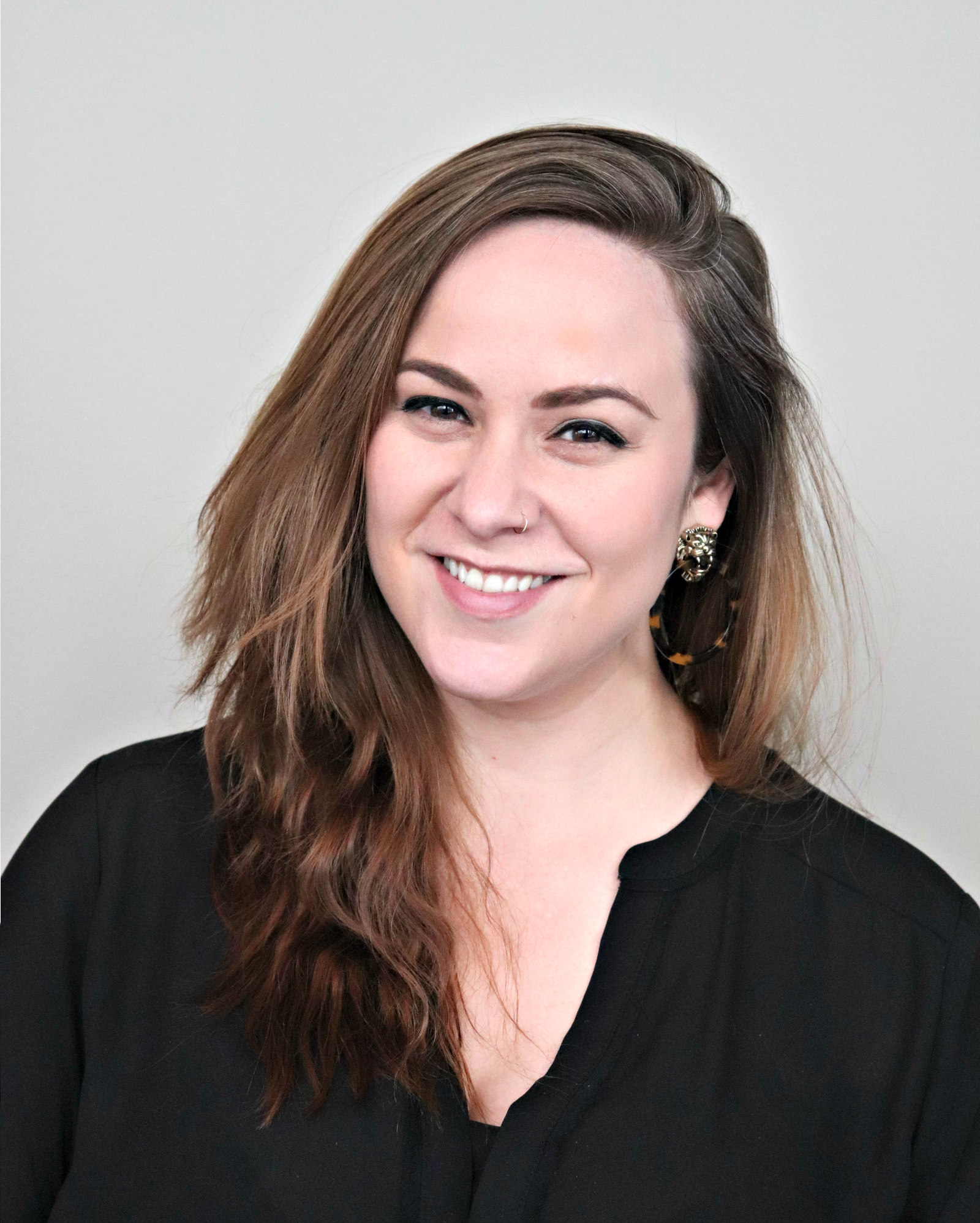
There are plenty of topics to occupy a brand-new parent's worried mind: What does that cry mean? Is that gurgle normal? Is my child healthy? Am I doing this right?!
Thinking about b'rit milah (circumcision, commonly called "bris") can provide added stress: Will my baby be in pain? Who will perform the ceremony? Enter the mohalim (plural for mohel or mohelet, a ritual circumciser). A skilled mohel who is also a medical professional can perform a b'rit milah with a deft hand and Jewish soul.
North American Reform mohalim are trained and certified by the Brit Milah Board of Reform Judaism and supported by the National Organization of American Mohalim (NOAM), which works to make the practice of b'rit milah an available, meaningful, and relevant Jewish lifecycle ritual for families.
All NOAM-supported mohalim are qualified medical practitioners who are also trained in Jewish ritual, liturgy, and education. For many of them, it's a deeply spiritual role.
"Being a mohelet has been in my DNA, and I feel as if I was born for this work," says Dr. Judy Fried Siegel, a pediatric urologist in New York City. "My bones believe that this work honors all the nameless ancestors who link us back to Abraham and Sarah."
Others become mohalim out of communal need. Dr. Jenelle Little, a neonatal hospitalist in Houston, says that when her son was born, there was only one mohel to choose.
"His Orthodox approach didn't feel authentic to my beliefs as a Reform Jew," she says. "I already performed circumcisions in my medical practice, so I thought 'I could do this!' I really wanted people in my community to have choices."
Like the broader Reform Movement, Reform mohalim are committed to inclusion and egalitarianism, making b'rit milah available to families of varying backgrounds and structures. This includes same-sex couples, interfaith families, and more.
Dr. Lauren Cadish, an Ob/Gyn in the Los Angeles area, makes no assumptions about the background or Jewish familiarity of the families she serves. Every chant she recites is said in Hebrew and English. She also makes sure to explain the history and significance of the ceremony to the guests before beginning.
"It's important to me to incorporate the beauty and history of our traditions in a way that is modern, relevant, and welcoming," she says. "I'm very conscious of my position as something of an ambassador for Reform Judaism, as I may be the first point of contact for new families who are unaffiliated with the local Jewish community. I want their experience to be a positive one."
Many Reform mohalim try to include all family members, regardless of whether they identify as Jewish, in the ceremony.
"All grandparents are encouraged to participate , either with traditional roles or by choosing to recite a poem, read a blessing, or sing a song. Some speak to the significance of [the baby's] given name," says Dr. Karin Susskind, a mohelet and family practitioner in Boulder, CO. "Many times, a family member will speak with me afterward and explain that this was the most meaningful ritual they've witnessed and how grateful they are to be here at the start of the baby's Jewish journey."
In the past, all mohalim were male; it was only in the 1980s that women began training for the role. Today, NOAM encourages mohalim to make the historically male-focused b'rit milah ceremony as inclusive as possible. They work to represent both the diversity of the Jewish community and the makeup of the individual families accurately and sensitively they serve.
"I use non-gendered pronouns, both in reference to God and parents," says Dr. Little.
"For example, instead of the traditional reference to a 'father's responsibility to circumcise his son,' I use 'the parents' responsibility to circumcise their son.' I'm careful to adjust the wording of the traditional blessings to appropriately represent the family."
Reform mohalim also acknowledge the emotional struggle parents may face in deciding whether to have their child circumcised. Dr. Cadish says questions and uneasiness about the commandment of circumcision should be expected - and welcomed.
"Some of our holiest work is in welcoming families who are still facing the tumult of what it means to raise a Jewish child," she says. "That first week after birth can be an inflection point; sending the message that we accept your family can be really meaningful."
Dr. Cadish continues, "We shouldn't expect people to have no doubts. Parenthood is chock full of doubt - and Judaism is really good at doubt."
Mohalim talk with parents, help them work through their concerns, and explain the measures in place to keep their baby safe and comfortable throughout the ceremony. These measures often include recommending that parents feed the baby prior to the ceremony, administering lidocaine and acetaminophen, giving the infant sugar water to relax, and performing a calming craniosacral move afterward.
"We also discuss that as a community, we stand together during both wonderful and hard things," Dr. Susskind says, "and this child will never be alone." All of this, she says, paired with the practitioner's level of medical experience, helps parents feel supported.
Dr. Fried Segel encourages parents to read Anita Diamant's "The New Jewish Baby Book," which explains b'rit milah in both and practical terms. Having a deeper understanding of the ritual often helps families feel secure in their decision and more connected to the generations who have engaged in this ritual before them.
"For Judaism to continue, it's important to help families feel in their kishkes [gut] that they are woven into this ancient tapestry of Judaism," she says. "There's nothing more inspiring and uplifting than a tearful parent repeating after me, word for word, the blessing just before the circumcision. It fills me with hope that Am Yisrael Chai - the Jewish people lives."
NOAM offers a virtual 10-session training program every year for medical professionals who can provide documented proficiency in performing infant circumcision. Interested candidates can email Rabbi Mark Cooper at mcooper@huc.edu or visit NOAM's website for more information.
Related Posts

Becoming B’nei Mitzvah at Any Age

Welcoming Baby


